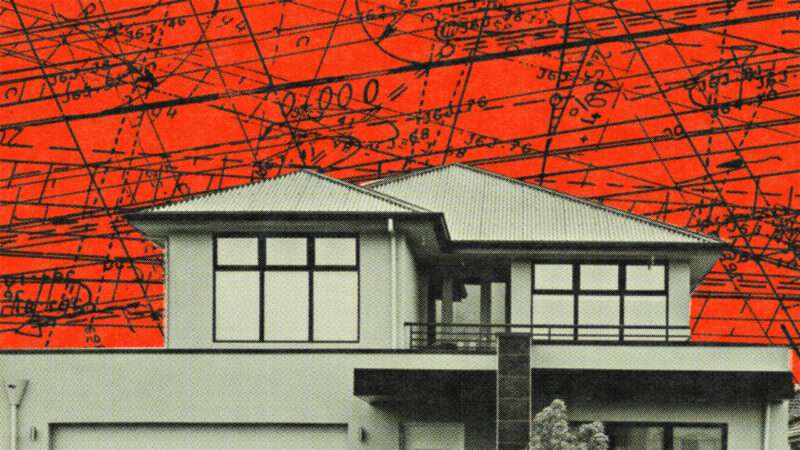

In a post at his Slow Boring website on what the federal government can do to alleviate our massive shortage of affordable housing, prominent progressive political commentator and zoning reform advocate Matt Yglesias comments on my forthcoming Texas Law Review article arguing that exclusionary zoning violates the Takings Clause of the Fifth Amendment (coauthored with Josh Braver):
[I]n mid-February Ilya Somin and Joshua Braver published a law review article calling on the Supreme Court to either reverse or sharply limit the 1926 Euclid v. Amber decision and hold that exclusionary zoning is a "taking" under the meaning of the 5th Amendment. I try not to opine on matters of constitutional law, because I think it's mostly just people making stuff up. But the Euclid doctrine is genuinely bizarre. As I first learned by playing SimCity on DOS, the basic point of zoning is to separate industrial, residential, and commercial uses in order to avoid undesirable pollution and facilitate transportation planning. But from the beginning, land use regulation has clearly been put to other uses. Back in the 1917 case of Buchanan v. Warley — decided at a time when racism was mainstream in America — the Supreme Court held that local government couldn't reserve certain neighborhoods for white people and others for Black people. This was long before the Civil Rights Act and also before the school desegregation cases that struck down the concept of "separate but equal."
Then, nine years later in Euclid, they turned around and it said was fine to exclude all apartment buildings from a neighborhood, because rental housing for working class people was a "mere parasite" on single-family homes, which is just rhetoric that doesn't engage with any empirical information. I understand that a lot of people have concerns about expanding the takings doctrine (Somin is a right-wing guy), but I do think that the courts asking that land use regulation have real public purpose would be constructive.
Yglesias is right that the exclusionary zoning approved by the Supreme Court in Euclid turned out to be a backdoor to racial exclusion. Indeed, this was predicted by the lower court judge whose decision the Supreme Court overruled (see discussion in Part I of our article). In that respect, Euclid predictably undercut much of the beneficial effect of Buchanan v. Warley. He's also right that the policy rationale for Euclidean exclusionary zoning is flimsy at best. As the district court put it, "[i]n the last analysis, the result to be accomplished is to classify the population and segregate them according to their income or situation in life."
It's not clear to me what Yglesias means by "courts asking that land use regulation have real public purpose." But, as we argue in the article, the best way to ensure that local government can't use zoning to exclude large numbers of middle class and poor people is to rule that doing so without compensation violates the Takings Clause.
Regulations that protect against substantial threats to health and safety may be exempt from takings liability under the "police power" exception (see Section II.C of our article). This may lessen some of the "concerns about expanding the takings doctrine" that Yglesias referred to.
Expanded takings liability would still likely reach some regulatoins progressive zoning reformers like. But that tradeoff is likely worth it, given the truly enormous harmful impact of exclusionary zoning, which cuts off millions of people from jobs and opportunity, particularly the poor and minorities (see Part I of our article, and many of Yglesias' own writings on this topic). More generally, judicial protection of almost any constitutional right involves some tradeoffs. Freedom of speech requires tolerating communists and Nazis. Protecting criminal defendants' rights means some guilty criminals will go free. And so on.
Yglesias also implies that the "concerns" may be heightened by the fact I am a "right-wing guy." Whether I am left-wing or right-wing depends on which issues you focus on. I do indeed hold some conventionally right-wing views, such as advocating massive cuts in government spending and the welfare state. On the other hand, I also favor abortion rights, open borders immigration, and abolishing the War on Drugs (all of it, not just marijuana prohibition).
Perhaps more importantly, my co-author, Josh Braver, is unimpeachably progressive. If I'm a "right-wing guy," he's a left-wing one. The article is a project in cross-ideological cooperation. The policy case against exclusionary zoning has long cut across partisan and ideological lines, as Yglesias himself recognizes. Josh and I argue the constitutional case can, as well. As we explain, both originalist theories favored by many on the right, and various living-constitution theories popular on the left converge on similar results here.
We recognize that judicial review probably cannot solve the problem of exclusionary zoning by itself. But, as described in Part IV of the article, it can be effective in conjunction with political reform efforts. That, we argue, is the lesson of many previous successful reform movements that combined litigation with political action, such as the civil rights movement, the LGBT movement, gun rights activists, and others.
Finally, Yglesias is at least partly right that many constitutional arguments involve people just "making stuff up." But, of course, the same is true of many moral and policy arguments, as well. In law, as in policy, the way forward is to try to separate out good arguments from bad ones.
The post Matt Yglesias on the Takings Clause and Curbing Exclusionary Zoning appeared first on Reason.com.







